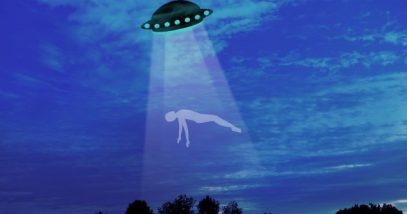 Our World
Our World  Our World
Our World  Crime
Crime 10 Dark Details of the “Bodies in the Barrels” Murders
 Animals
Animals The Animal Kingdom’s 10 Greatest Dance Moves
 Movies and TV
Movies and TV 10 Box Office Bombs That We Should Have Predicted in 2025
 History
History 10 Extreme Laws That Tried to Engineer Society
 History
History 10 “Modern” Problems with Surprising Historical Analogs
 Health
Health 10 Everyday Activities That Secretly Alter Consciousness
 History
History Top 10 Historical Disasters Caused by Someone Calling in Sick
 Animals
Animals 10 New Shark Secrets That Recently Dropped
 Movies and TV
Movies and TV 10 Forgotten Realities of Early Live Television Broadcasts
 Our World
Our World 10 Places with Geological Features That Shouldn’t Exist
 Crime
Crime 10 Dark Details of the “Bodies in the Barrels” Murders
 Animals
Animals The Animal Kingdom’s 10 Greatest Dance Moves
Who's Behind Listverse?

Jamie Frater
Head Editor
Jamie founded Listverse due to an insatiable desire to share fascinating, obscure, and bizarre facts. He has been a guest speaker on numerous national radio and television stations and is a five time published author.
More About Us Movies and TV
Movies and TV 10 Box Office Bombs That We Should Have Predicted in 2025
 History
History 10 Extreme Laws That Tried to Engineer Society
 History
History 10 “Modern” Problems with Surprising Historical Analogs
 Health
Health 10 Everyday Activities That Secretly Alter Consciousness
 History
History Top 10 Historical Disasters Caused by Someone Calling in Sick
 Animals
Animals 10 New Shark Secrets That Recently Dropped
 Movies and TV
Movies and TV 10 Forgotten Realities of Early Live Television Broadcasts
Books
Random List
 Books
Books 10 Stories That Actually Nailed Our Future Tech
 Books
Books 10 Great Literary Works That Almost Had Terrible Titles
 Books
Books 10 Reasons Dickens Would Love “The Muppet Christmas Carol” Adaptation
 Books
Books 10 Books That Inspired Dark Behaviors
 Books
Books 10 Crazy Moments in the Original Sherlock Holmes Stories
 Books
Books 10 Famous Writers Who Came Up with Everyday Words
 Books
Books 10 Surprisingly Dark Moments in Seemingly Benign Books
 Books
Books 10 Stories Far Ahead of Their Time
 Books
Books 10 Middle-Earth Tales Worth Adapting
 Books
Books 10 Shocking Facts about the Short Life of Percy Bysshe Shelley
 Books
Books 10 Books That Popularized Paranormal Phenomena
Editor’s Picks
 Movies and TV
Movies and TV 10 Psychiatric Diagnoses Of Horror Villains And Their Victims
 Movies and TV
Movies and TV 10 Greatest Movie MacGuffins Of All Time
 Movies and TV
Movies and TV 10 Iconic Movie And TV Restaurants That Are Actually Real
 Movies and TV
Movies and TV